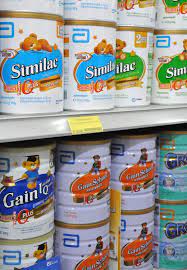The transition from breast milk or formula to toddler milk powder can be a significant milestone in a child’s early years. For new mothers, choosing the right toddler milk powder can be a daunting task, as it directly affects their child’s growth and development. This blog aims to provide guidance to new mothers on selecting the best toddler milk powder and addresses frequently asked questions (FAQs) related to this crucial topic.
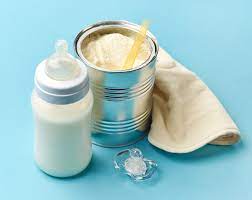
What is Toddler Milk Powder?
Toddler milk powder, often referred to as toddler formula or growing-up milk, is a specially formulated milk substitute designed for children aged 1 to 3 years. It is intended to complement a toddler’s diet as they transition from breast milk or infant formula to regular cow’s milk. Toddler milk powders are fortified with essential nutrients to support the growth and development of young children.
Why Choose Toddler Milk Powder?
There are several reasons why parents may choose toddler milk powder for their little ones:
- Nutrient Enrichment: Toddler milk powders are fortified with essential nutrients such as iron, calcium, vitamins, and minerals, which are important for a growing child’s development.
- Transition from Infant Formula: When a child reaches the age of one, it’s recommended to switch from infant formula to toddler milk powder as it better meets their nutritional needs.
- Picky Eaters: Some toddlers can be picky eaters, and toddler milk powder can help ensure they receive adequate nutrition even if they don’t consume a wide variety of foods.
- Dietary Restrictions: For children with dietary restrictions or allergies, toddler milk powder can be a suitable alternative.
How to Choose the Best Toddler Milk Powder
Selecting the best toddler milk powder for your child is crucial for their overall health and well-being. Here are some factors to consider when making your choice:
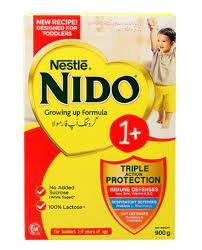
- Nutritional Composition: Look for toddler milk powders with a balanced nutritional profile. Ensure they contain essential vitamins, minerals, and appropriate levels of fat, protein, and carbohydrates.
- Ingredient List: Read the ingredient list carefully. Opt for products with minimal additives and artificial flavors.
- Age-Appropriate: Ensure that the product is specifically formulated for toddlers aged 1 to 3 years.
- DHA and ARA: Many toddler milk powders contain DHA (docosahexaenoic acid) and ARA (arachidonic acid), which are essential for brain and eye development.
- Allergies and Dietary Restrictions: Consider any allergies or dietary restrictions your child may have. Some toddler milk powders are available in lactose-free or soy-based options for children with specific dietary needs.
- Brand Reputation: Research the reputation of the brand and check for certifications that guarantee the product’s quality and safety.
- Consult a Pediatrician: Always consult your child’s pediatrician before making any dietary changes, including introducing toddler milk powder.
- Top 7 Toddler Milk Powder Recommendations
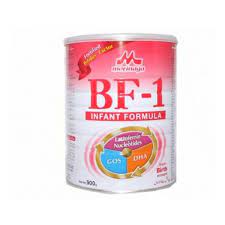
To help you make an informed decision, here are seven highly recommended toddler milk powders:
- Enfagrow Premium Toddler Transitions: Enfagrow is known for its high-quality toddler milk powders. They offer products that cater to different age groups and nutritional needs.
- Similac Go & Grow: Similac’s Go & Grow is a popular choice among parents, featuring a blend of essential nutrients and probiotics for digestive health.
- Nestle NIDO Kinder 1+: Nestle’s NIDO Kinder 1+ is enriched with vitamins and minerals, promoting healthy growth and development in toddlers.
- Earth’s Best Organic Toddler Milk Powder: For parents looking for an organic option, Earth’s Best offers a high-quality organic toddler milk powder with essential nutrients.
- Gerber Good Start Grow: Gerber is a trusted name in infant and toddler nutrition. Their Good Start Grow formula is designed to support toddlers’ nutritional needs.
- Parent’s Choice Gentle Toddler Milk Powder: Walmart’s Parent’s Choice offers a budget-friendly option that doesn’t compromise on quality. It’s an excellent choice for cost-conscious parents.
- Happy Baby Organics Toddler Milk Powder: Happy Baby Organics provides an organic and non-GMO option, ensuring that your child’s nutrition is free from harmful additives.
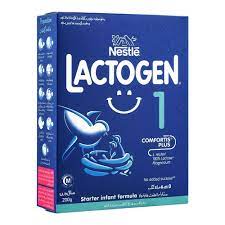
FAQs
To address common concerns and queries that new mothers may have about toddler milk powder, here are some frequently asked questions:
Q1. Is toddler milk powder a suitable replacement for breast milk or formula?
A1. Toddler milk powder is designed to complement a toddler’s diet after the age of one. While it can be a suitable replacement for breast milk or infant formula in terms of nutrition, it should not replace breast milk or formula during the first year of life, as these are specifically tailored to meet the nutritional needs of infants.
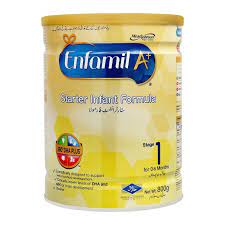
Q2. When should I start giving my child toddler milk powder?
A2. It’s recommended to introduce toddler milk powder when your child turns one year old. At this age, their nutritional needs change, and toddler milk powder can help meet those requirements.
Q3. Can I mix toddler milk powder with regular cow’s milk?
A3. While it’s possible to mix toddler milk powder with cow’s milk, it’s essential to consult your child’s pediatrician before doing so. Cow’s milk alone may not provide all the necessary nutrients for toddlers, which is why toddler milk powder is formulated to bridge this gap.
Q4. Are there any specific safety concerns related to toddler milk powder?
A4. Toddler milk powders are generally safe when prepared and stored according to the manufacturer’s instructions. However, it’s crucial to use clean utensils and properly store the milk powder to prevent contamination. Always check for product recalls and safety updates from the manufacturer.
Q5. How do I prepare toddler milk powder?
A5. Follow the instructions on the product label for the correct preparation of toddler milk powder. Typically, you’ll need to mix a specific amount of powder with water at the recommended temperature. Make sure to use clean utensils and measure the powder accurately to ensure your child receives the right nutrition.
Q6. Can my child develop allergies to toddler milk powder?
A6. Some children may have allergies or sensitivities to certain ingredients in toddler milk powder. If you suspect an allergy, consult your child’s pediatrician. They can recommend alternative options such as lactose-free or soy-based formulas.
Q7. Can I continue breastfeeding while giving my child toddler milk powder?
A7. Yes, it’s possible to continue breastfeeding while introducing toddler milk powder into your child’s diet. This can provide a smooth transition and help ensure that your child receives adequate nutrition.
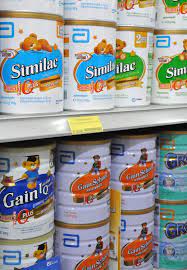
Conclusion
Choosing the right toddler milk powder is an important decision for new mothers. It can significantly impact a child’s growth and development during their early years. By considering the nutritional composition, ingredients, brand reputation, and your child’s specific needs, you can make an informed choice. Always consult your child’s pediatrician before making any dietary changes to ensure the best possible outcome for your little one. Toddler milk powder, when used as part of a balanced diet, can be a valuable addition to support your child’s nutritional needs as they continue to grow and thrive.

